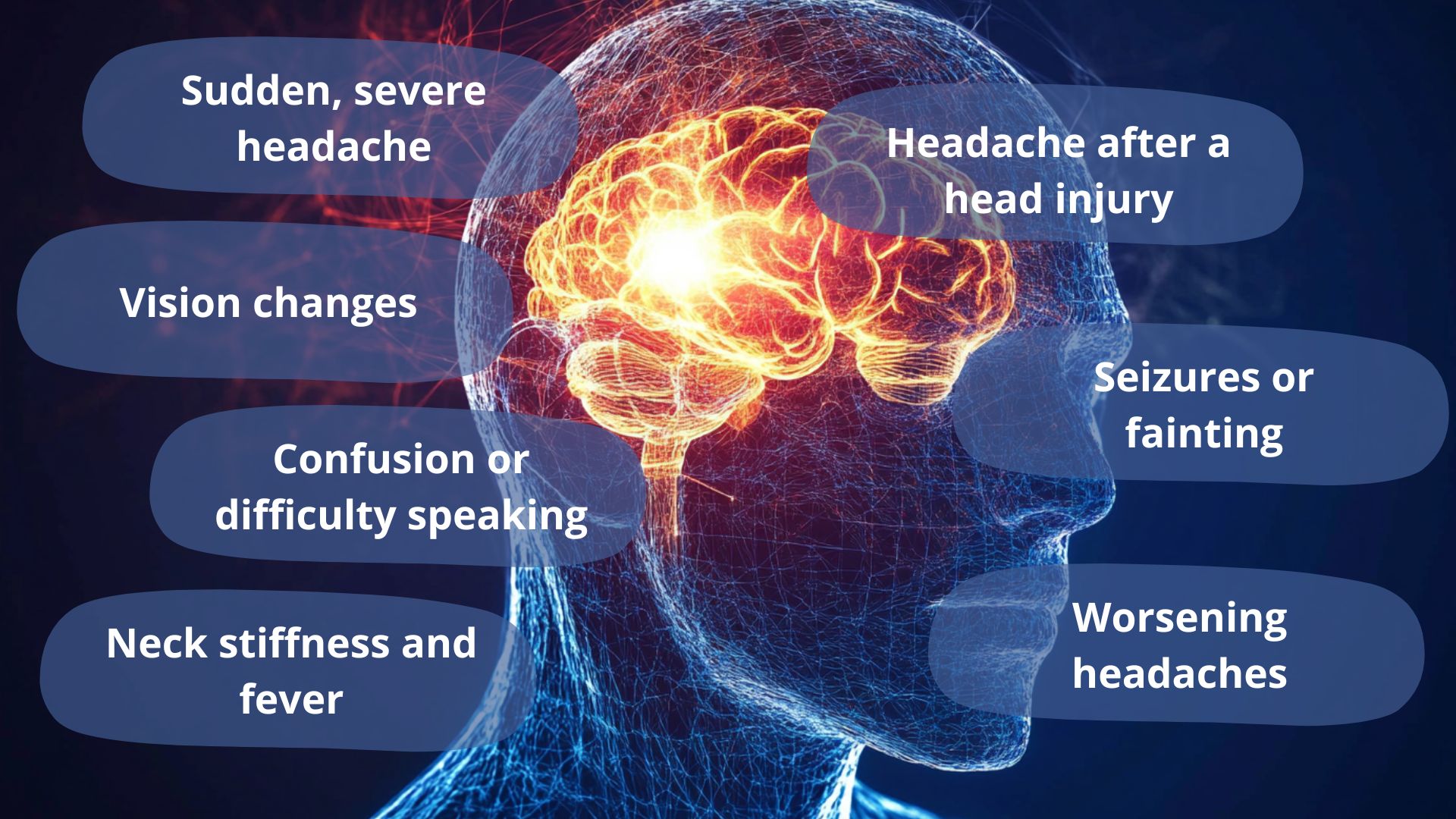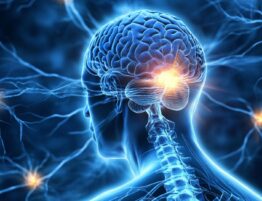Headaches are one of the most common complaints patients seek medical help for. About half of the world’s adult population suffers from this problem yearly. The World Health Organization (WHO) recognizes this. Why do headaches occur, and when should you contact a doctor immediately? Let’s explore this. Few people truly understand the different causes of headaches. They can’t recognize when it’s time to seek medical help.
Most headaches are temporary and triggered by stress, dehydration, or lack of sleep. Some may be warning signs of a deeper issue. Chronic headaches, in particular, can indicate underlying health conditions. They should not be ignored. Consult a specialist if you have migraines, nerve disorders, or even high blood pressure.
You’ll learn about the most common causes. We’ll explore how to spot the difference between occasional pain and something more serious. We’ll also discuss when to see a doctor. Understanding your symptoms is the first step. This leads to better headache prevention, treatment, and long-term relief.
The Most Common Causes Behind Frequent Headaches
Frequent headaches can disrupt your day and make even simple tasks feel overwhelming. Understanding the most common causes of headaches can help you take control. It also helps reduce how often they occur. Many daily habits and environmental factors contribute to recurring pain.
Here are some of the top headache causes:
- Stress: Emotional tension is a significant trigger for tension-type headaches.
- Dehydration: Not drinking enough water can lead to headaches, especially in hot weather or after exercise.
- Poor posture: Sitting or standing improperly can strain neck and shoulder muscles, causing head pain.
- Skipped meals: Low blood sugar from missing meals may lead to headaches.
- Screen time: Long hours in front of computers or phones can strain the eyes and cause discomfort.
- Lack of sleep: Poor sleep habits or insomnia can increase headache frequency and severity.
There are other headache triggers worth noting. Let’s explore them:
- Hormonal changes: Shifts in estrogen levels can trigger migraines in some women.
- Weather changes: Sudden shifts in temperature or pressure cause headaches. This usually affects sensitive individuals.
- Certain foods: Aged cheese, chocolate, caffeine, and alcohol are common triggers. It’s important to limit these foods.
Identifying your personal headache triggers is the first step toward managing symptoms. A journal can help you connect patterns and make informed lifestyle adjustments. These are essential for better long-term relief.
How to Tell If You Have Chronic Headaches
Many people experience occasional headaches. When they become frequent, it may signify a more serious condition. Chronic headaches are defined as occurring more than 15 days for at least three months. Unlike typical headaches, they can be more intense. These headaches last longer and significantly impact daily life.
Here’s how chronic headaches differ and what to watch for:
- Frequency: Headaches that occur nearly every day or more than half the month.
- Duration: Pain that lasts for hours or returns soon after relief.
- Severity: Constant or severe pain that affects work, sleep, or daily activities.
- Dependence on medication: Using pain relief medication too often can be problematic. It can lead to medication-overuse headaches.
- Associated symptoms: Nausea, sensitivity to light, and visual disturbances may point to migraines.
Common causes behind chronic patterns include:
- Migraines: Often genetic, with throbbing pain, nausea, and visual auras.
- Tension-type headaches: Usually caused by stress or muscle tension, with a dull, pressing pain.
- Medication overuse: Taking pain relievers too frequently can trigger more headaches.
If you suspect you have chronic headaches, don’t ignore the signs. A healthcare provider can help identify the root causes and create a treatment plan that offers lasting relief.
Warning Symptoms of Headaches You Shouldn’t Ignore
Most headaches are harmless and go away with rest, hydration, or over-the-counter medicine. Some headache symptoms may indicate a serious medical issue that requires urgent attention. Knowing when to see a doctor can help prevent complications and even save your life.
Watch for these warning signs of headaches:
- Sudden, severe headache: Often described as the “worst headache ever,” this could signal a brain aneurysm or stroke.
- Vision changes: Blurred vision, double vision, or vision loss can indicate serious neurological problems.
- Confusion or difficulty speaking: These symptoms may indicate a stroke. They also may signal other brain-related conditions.
- Neck stiffness and fever: This combination could be a sign of meningitis.
- Headache after a head injury: Even if mild, this may indicate a concussion or internal bleeding.
- Seizures or fainting: These neurological symptoms, alongside a headache, require immediate evaluation.
- Worsening headaches: If headaches grow more frequent or intense over time, it’s time to seek help.
When should you see a doctor? Seek medical attention if you experience any of the symptoms above. A healthcare provider can determine whether your headache is a sign of a more serious issue. The doctor will guide you toward appropriate treatment.
Types of Headaches and What Makes Each One Different
Understanding the different types of headaches is key to finding effective relief. Each type has distinct features, durations, and triggers. By recognizing the symptoms of headaches, you can better manage your pain. You can also seek appropriate treatment.
Here are the most common types of headaches:
- Tension Headaches: These are the most common type. They cause a dull, aching pain across the forehead or around the back of the head and neck. The pain is usually mild to moderate and lasts several hours or even days. Stress, poor posture, and eye strain are common triggers. Most adults experience these headaches occasionally.
- Migraines: Migraines are intense, throbbing headaches. They are often accompanied by nausea, sensitivity to light, and sound. Visual disturbances (auras) can last from 4 hours to 3 days. These symptoms of headaches are more common in women and people with a family history of migraines.
- Cluster Headaches: These headaches cause severe, burning pain around one eye. It may include redness, tearing, or nasal congestion on the affected side. Attacks are short (15 minutes to 3 hours) but occur in clusters over weeks or months. These headaches are most common in men, especially smokers.
- Sinus Headaches: These cause pressure and pain in the forehead, cheeks, and around the nose. They are usually linked to sinus infections and worsen when bending forward. People with allergies or chronic sinus issues are typically affected.
Recognizing your symptoms and understanding the types of headaches you experience is important. It can help you and your doctor choose the most effective treatment.
Simple Lifestyle Changes That Help Prevent Headaches
Many people rely on medication to relieve headaches. Some of the most effective strategies for preventing headaches are simple lifestyle changes. Addressing common causes can reduce how often they occur and improve your overall well-being.
Here are easy, affordable ways to start preventing headaches:
- Stay hydrated: Dehydration is one of the most overlooked causes. Aim to drink enough water throughout the day. This is especially important in hot weather or after exercise.
- Limit screen time: Long hours on digital devices can cause eye strain and tension headaches. Take regular screen breaks using the 20-20-20 rule. Every 20 minutes, look at something 20 feet away for 20 seconds.
- Consistent sleep: Irregular sleep patterns or lack of rest can trigger headaches. Stick to a regular sleep schedule and aim for 7–9 hours per night.
- Eat balanced meals: Skipping meals or eating unbalanced diets can lead to blood sugar drops, which is a common headache trigger. Eat nutritious meals at regular intervals.
- Limit caffeine and alcohol: These can trigger headaches in sensitive individuals. Keep intake moderate and monitor your body’s response.
- Manage stress: Chronic stress contributes to tension headaches. Try yoga, meditation, deep breathing, or daily walks to relax your mind and body.
- Exercise regularly: Moderate physical activity improves circulation and reduces stress. Exercise also supports better sleep, which is a key factor in preventing headaches.
By making minor adjustments, you can take control of common headache causes and reduce your reliance on medication. Prevention is often easier and more effective than treatment.
When to Seek Medical Help for Recurring Headaches
Recurring headaches can be more than just a nuisance. They can disrupt your life and leave you wondering if something serious is happening. Knowing when to see a doctor is crucial for finding relief. It also helps address potential causes. Most headaches, including tension or dehydration-related ones, are manageable at home, but certain signs indicate it’s time to seek medical help.
Here are key reasons to consult a healthcare provider:
- Frequent Headaches: Are you experiencing headaches more than a few times a month or are they increasing in frequency? A doctor can help identify triggers or underlying issues.
- Severe Pain: Intense headaches can feel unbearable or different from your usual ones. A sudden, severe ‘thunderclap’ headache requires prompt attention as it could indicate serious conditions.
- Interference with Daily Life: If headaches stop you from working, socializing, or enjoying life, it’s a sign they’re not just “normal.” They might stem from headache causes like migraines, stress, or even neurological issues.
- Accompanying Symptoms: Seek help if headaches come with nausea or vision changes. Weakness or confusion is also a dangerous sign. These could point to treatable conditions.
In most cases, there is no cause for concern. Sometimes headaches can be a sign of stroke, meningitis, or brain tumors. If you have frequent or severe headaches, don’t delay—seek medical help immediately from a neurologist or your primary care doctor. Consult with a healthcare provider if you’re experiencing concerning headache symptoms.












I've given up... the stress her office staff has put me through is just not worth it. You can do so much better, please clean house, either change out your office staff, or find a way for them to be more efficient please. You have to do something. This is not how you want to run your practice. It leaves a very bad impression on your business.
Please, leave your review
Write a comment: